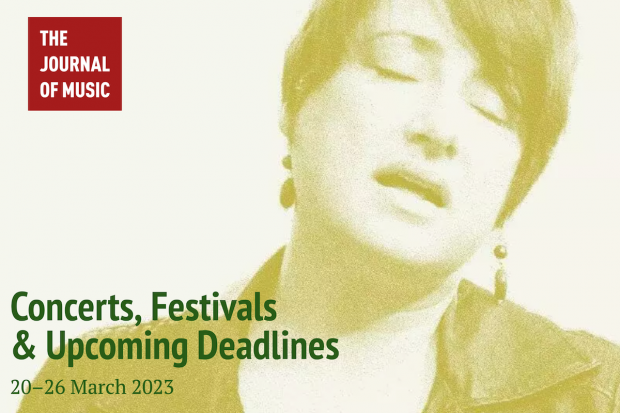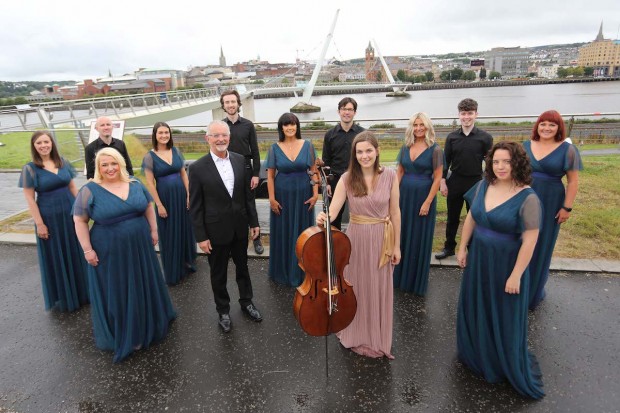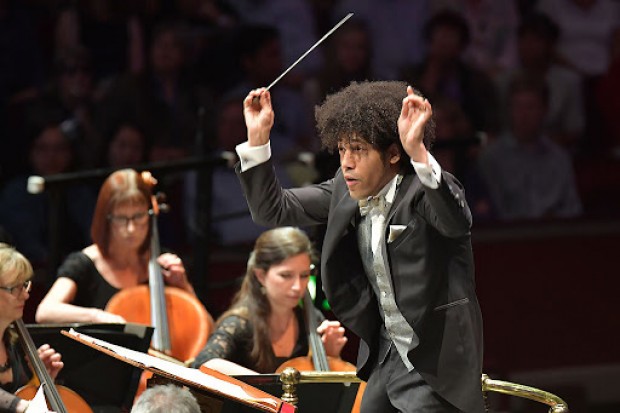
The BBC Singers would have celebrated 100 years in 2024, but instead the broadcaster is disbanding the ensemble this summer. (Photo: BBC)
Short-term Thinking Won't Deliver Anything But Cuts to British Music
Oops!… They did it again. Last November I wrote an article lamenting the draconian cuts that Arts Council England had inflicted on classical music. Now it’s March and the BBC have published a ‘New Strategy for Classical Music’ that announces their intention to close the BBC Singers and to slim down its three English orchestras by cutting 20% of ‘salaried orchestral posts’. The result has been an outcry from the music profession: an online petition attracted over one hundred thousand signatories in its first four days, a letter of protest to the Guardian was signed by more than seven hundred composers from across the world, and a leaked letter from the BBC Singers’ co-directors to the Chair of the BBC detailed a string of managerial failures.
The BBC’s strategy document claims that these cuts will make their orchestras more ‘agile’, more able to work ‘flexibly and creatively’, and that the money saved by sacking twenty people in the BBC Singers will be used ‘to invest more widely in the future of choral singing across the UK’. Neither of these claims rings true. The BBC Symphony Orchestra’s website lists 78 people, so a 20% cut would reduce it by 15 players. Who goes? Presumably not the wind, brass and percussion, because each of those sections has just a handful of musicians. So 15 string players lose their salaried positions, their seats filled by freelance musicians. In the strategy document none of this is costed; what’s certain is that such losses would knock the shine off the sound of a string section whose cohesion depends on a consistent group of players.
Nor are other orchestras safe. There’s an ominous sentence in the new strategy promising that as ‘changes are made across the English groups’ there will be a further review ‘to consider whether there could be any lessons’ for the orchestras based in Cardiff, Glasgow and Belfast. It’s an unfortunate phrase. In an era when nationhood is high on the agenda in Wales, Scotland and Northern Ireland, being taught ‘lessons’ by the English is probably unwelcome.
The choral argument is even harder to sustain. Britain has a unique choral tradition that embraces everything from local community choirs to big amateur choruses that sing two or three times a year with professional orchestras, and professional groups like The Sixteen and the Tallis Scholars who specialise in the music of the Renaissance and Baroque. But the BBC Singers are not like any of these choirs: they are a small ensemble of virtuoso singers whose repertoire ranges across the centuries, from early music to complex modern works; in 2022–23 they presented 25 different programmes.
Muddled thinking
Between 2006 and 2016 BBC television had a big hit with The Choir, in which Gareth Malone went round Britain encouraging people to raise their voices in song. Most had never done anything like this before and each series of The Choir traced a development from nervous beginnings to a joyous conclusion. It was life-affirming television that celebrated the way that singing together can enable people to become fuller versions of themselves. Perhaps this is what the ‘New Strategy’ imagines when it claims that getting rid of the BBC Singers will allow it to ‘invest more widely in the future of choral singing across the UK’. But wouldn’t it be better to invest in the BBC Singers too, as a flagship for the whole of British choral singing?
The BBC’s new strategy for classical music has muddled two unrelated issues. One is about the purpose of the BBC itself. No one launching a big media organisation in 2023 would include six orchestras and a professional vocal ensemble in its business plan. But the BBC is not just a big media organisation, it is a key component of British identity, both in Britain and around the world. Since its beginnings a century ago, the BBC has become the beating heart that drives the entire national musical ecosystem, providing opportunities for all sorts of musicians and raising professional standards in performance and production. Beyond the UK the BBC projects Britishness, from the political ‘soft power’ of its news operation, documentaries and innovative entertainment formats to the excellence of its musicians. To lose the BBC Singers and damage the effectiveness of the BBC orchestras is an act of cultural self-harm.
The other issue is inclusivity. Britain is a profoundly divided society and people on low incomes have fewer educational opportunities than at any time in the last sixty years. In state schools there is little classroom music teaching and no instrumental or singing teaching. Consequently the music profession, whether classical, jazz or pop, is increasingly inaccessible for people from poorer backgrounds; it will become more middle class and less inclusive until music education is funded properly again. In November, Arts Council England tried to fix this by taking money from opera companies, chamber orchestras and new music groups and giving it to organisations that, ostensibly at least, served poorer communities. But the sums involved were paltry: losing £12m will kill an opera company, but spread across the country the money will make no difference to people’s chances of a sustained, worthwhile music education. The BBC’s strategy talks of ‘doubling funding for music education and launching new training initiatives’, but it’s the responsibility of the government, not the BBC, to mend Britain’s broken music education system.
There’s an obvious analogy with another current British dilemma, the traffic of people across the English Channel. For the UK government the problem here is ‘small boats’ and they want to stop them. But the small boats are just a symptom of a far greater problem. The world is full of people who live in impoverished, often war-torn countries and these people want to exchange poverty for prosperity. If rich nations won’t help them become prosperous in the countries of their birth, why should they stay where they are? But the crassly reductive world view of management strategists, whether in government, Arts Council England or the BBC, is too short-term to address these issues. Success for careerist managers, like the ‘Chief Content Officer’ who has underwritten the BBC’s classical music strategy, depends on quick fixes, not on sustainable solutions.
–
Subscribe to our newsletter.
Published on 20 March 2023
Christopher Fox is a composer, teacher and writer on music.

















